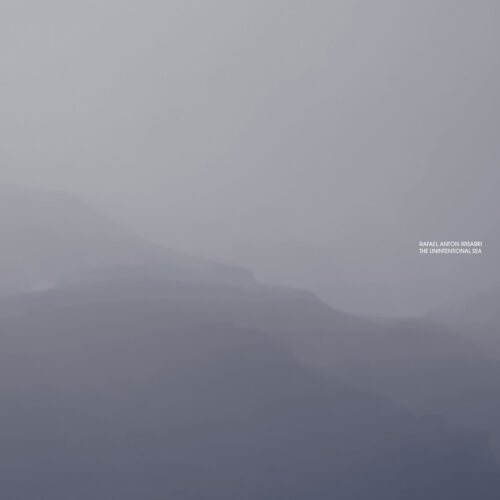It’s all quite simple, isn’t it? The painter uses paint, the author uses words and the musician uses sounds. Everything creates a picture: on canvas, in front of our inner eye, in our heads. However, ever since the arts of the 20th century have come along, it’s not as simple anymore. And yet: When it comes to Rafael Anton Irisarri, I’m tempted to stick to this very basic formula. Irisarri, who’s living in Seattle, Washington, turns sounds into landscapes. His music is somewhat gruff but doesn’t lack sensitivity; his subjects are still lives – yet they’re not lifeless, but instead tell stories of burnt grounds, wafts of mist, water flowing ashore and weathered woods. When listening to the five tracks of »The Unintentional Sea«, I had to think of Albert Camus. »The light was almost vertical and the glare from the water seared one’s eyes. The beach was quite deserted now. One could hear a faint tinkle of knives and forks and crockery in the shacks and bungalows lining the foreshore. Heat was welling up from the rocks, and one could hardly breathe.« This scene is only imaginable in black and white and can’t go without a bit of graininess. When translating this into sound, though, you’ll get the music of Irisarri. His first record in three years is loosely based on the history of the Salton Sea: In 1905, after some heavy rain, the Colorado River experienced a bursting of a dam, and accidentally the Salton Sea came into existence, growing from a large hollow, 66 meters below sea level. The history of the biggest inland water in the State of California is a story of becoming and passing. It quickly became a resting place for migratory birds, living space for fish and an elitist sanctuary for Southern Californians. However, the fragile ecosystem lacked an outflow and had to fight over-fertilization, long-lasting heat and a higher-than-average degree of salinity, leading to massive fish mortality in the 1950s. Since then, the bird population has declined, floods have occured and people have started to retreat from the place of retreat. The area’s dramatic change was the starting point for Rafael Anton Irisarri’s work on »The Unintentional Sea«. How did Camus sum it up again? In order to restore dignity and value to life, we have to consciously embrace the absurd – once again an approach that’s more than fitting.
Blue Lake
The Animal
Tonal Union






